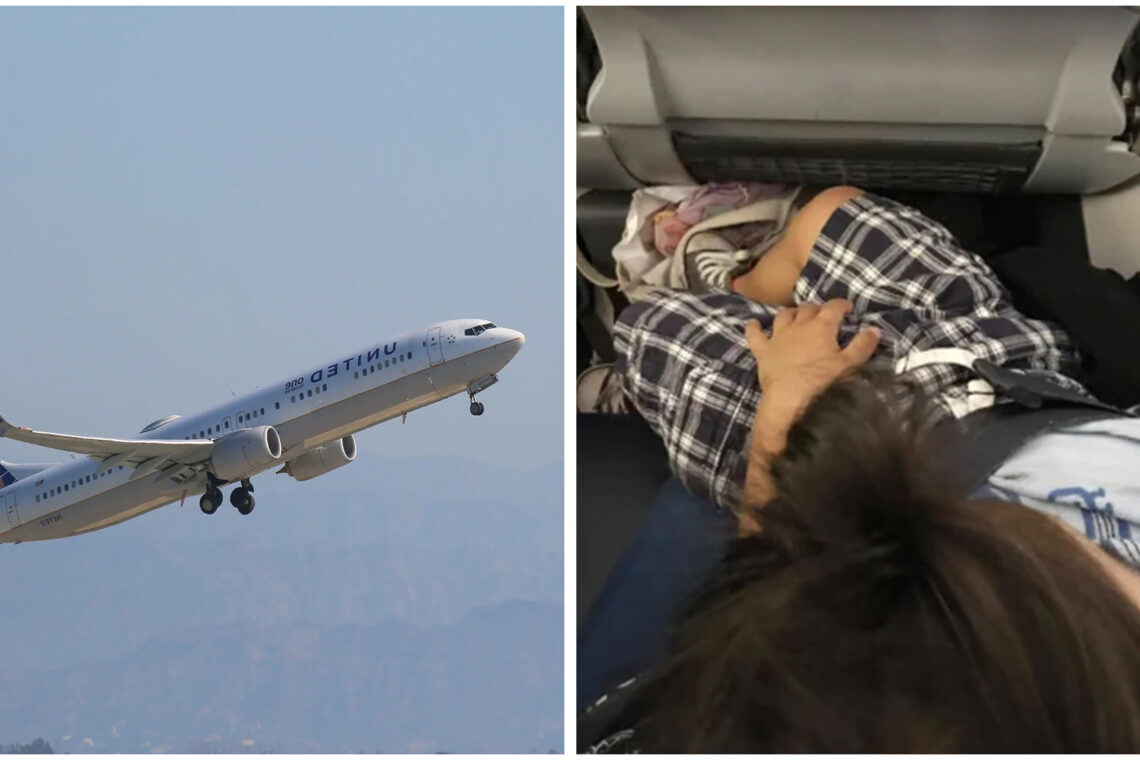
Stories of challenging air travel experiences have become commonplace, particularly as the thrill of flying fades in the face of rising costs and mounting frustrations. Regular flyers often find that the glamour associated with air travel is a thing of the past. Instead, they are left to navigate a myriad of complications, especially when children are involved. Traveling with toddlers or infants can amplify the stress, as these young ones are often restless and require constant attention.
The growing concern among travelers centers on the increasing instances of poor treatment by airlines, especially as ticket prices soar. This dilemma is exemplified by the recent experience of a mother named Shirley Yamauchi, whose costly ticket did not guarantee her son a seat.
Shirley, a dedicated middle school teacher from Kapolei, Hawaii, purchased a ticket from United Airlines for her 2-year-old son, Taizo, at nearly $1,000. To her dismay, she encountered a shocking situation during their flight from Houston to Boston. After flying from Hawaii to Houston, where they endured a lengthy five-hour layover, Shirley found herself facing an unexpected challenge when a standby passenger claimed her son’s seat.
As a parent, the anxiety of travel can be overwhelming, and Shirley’s ordeal was no exception. When she boarded the flight, she initially settled Taizo next to her, hoping for a smooth journey. However, her relief was short-lived when a man approached her, insisting that he was entitled to her son’s seat. Despite having paid a significant fare for his ticket, Shirley was instructed to hold her son on her lap for the duration of the over three-hour flight, a scenario no parent wishes to endure.
The situation escalated when Shirley learned that the airline had given away her son’s seat to a standby passenger who had purchased a much cheaper ticket for only $75. In addition to being distressing, this action raised serious questions about the airline’s policies. According to the established guidelines, children over the age of two are required to occupy their purchased seats, making this incident particularly concerning.
In an effort to resolve the situation, Shirley voiced her complaints to the flight attendants. Unfortunately, her efforts were met with indifference, and it wasn’t until five days after the flight that United Airlines finally offered an apology. Their explanation, however, was far from satisfactory, claiming that her son’s boarding pass had been inaccurately scanned. This vague excuse did little to alleviate Shirley’s frustrations, especially as she grappled with the uncomfortable reality of managing a restless toddler on her lap.
At only 5 feet 2 inches tall, Shirley struggled to maintain a comfortable hold on her 25-pound son. The cramped quarters of the airplane seat made it even more challenging, and at one point, Taizo was forced to crouch on the floor, a distressing sight for any parent. Such treatment raises larger questions about how airlines prioritize customer satisfaction and safety, especially when families are involved.
In light of her experience, Shirley has taken steps to seek justice, initiating a lawsuit against United Airlines. She expressed that while she received some level of good treatment and perks on her return flight, these gestures felt insincere given the earlier ordeal. Her case has garnered attention, highlighting the need for airlines to reevaluate their policies regarding seating and customer service, particularly for families traveling with young children.
As the travel industry continues to evolve, the balance between maximizing profits and ensuring customer satisfaction remains a contentious issue. The experiences of passengers like Shirley underscore the importance of transparency and accountability in airline practices. Families who invest heavily in air travel should not have to endure additional stress due to unexpected and unjustified seat reallocations.
Moreover, stories like Shirley’s serve as a reminder that effective communication and proper training for airline staff are crucial. Passengers should feel valued and respected, and their grievances should be addressed promptly and with empathy. It is vital for airlines to recognize that every ticket sold represents a family’s trust and investment, not just a monetary transaction.
In conclusion, the aviation industry must learn from experiences like Shirley’s to improve the overall travel experience for families. As air travel becomes increasingly common, it is essential for airlines to ensure that their policies are fair and that customers receive the treatment they deserve. The hope is that such incidents will prompt a broader conversation about the responsibilities of airlines towards their passengers, ultimately leading to a more compassionate and understanding approach to customer service. The future of air travel relies not only on the efficiency of operations but also on the respect and care shown to every individual who boards an aircraft.